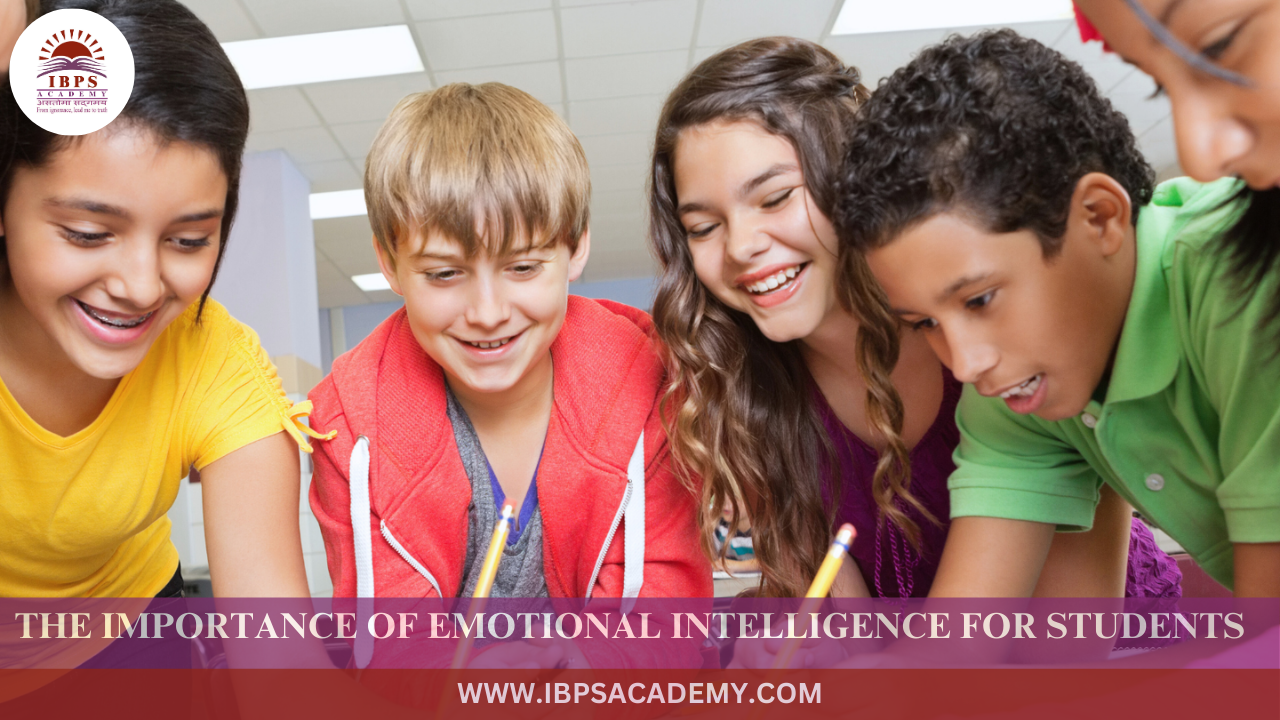

Emotional Intelligence (EI), often referred to as Emotional Quotient (EQ), is the ability to recognize, understand, manage, and influence emotions in oneself and others. For students, developing emotional intelligence is incredibly important for a variety of reasons, both academically and personally. Here's why:
Self-regulation: Students with high emotional intelligence are better at managing their emotions, reducing stress, and staying focused. They can handle academic pressure more effectively, leading to better performance.
Motivation: EI helps students stay motivated and resilient in the face of challenges, maintaining a positive attitude even during difficult coursework or exams.
Relationship-building: Students with strong EI are better at understanding and empathizing with others. This helps them build healthy friendships and work collaboratively in group settings, which is essential both in and outside of school.
Conflict resolution: EI enables students to navigate conflicts calmly and respectfully, improving their ability to resolve misunderstandings and maintain positive social interactions.
Personal growth: Emotional intelligence helps students become more aware of their strengths, weaknesses, and triggers. This self-awareness leads to higher self-esteem and personal growth.
Understanding emotions: By recognizing their emotions and understanding why they feel a certain way, students can make better decisions, control impulsive behavior, and approach challenges with a clearer mindset.
Emotional regulation: Emotional intelligence plays a significant role in managing stress and anxiety, which can often be overwhelming for students. By practicing mindfulness and emotional control, students can reduce the impact of negative emotions.
Coping strategies: EI provides students with the tools to effectively cope with setbacks, whether they're academic challenges, peer issues, or family stress, fostering resilience.
Expressing emotions effectively: Students with high EI are more adept at communicating their feelings in a clear and constructive way. This helps prevent misunderstandings and promotes healthier interactions with teachers, peers, and family members.
Active listening: EI also enhances students' ability to listen empathetically to others, which leads to better understanding and stronger relationships.
Teamwork: High EI helps students work better in teams. By understanding the emotions and perspectives of their peers, they can contribute to a more harmonious and productive group environment.
Leadership potential: Students with high emotional intelligence are more likely to demonstrate leadership qualities. Their ability to inspire and motivate others, manage group dynamics, and respond empathetically makes them effective leaders.
Career readiness: Emotional intelligence is a key factor in professional success. Many employers value EI as much as technical skills, as it influences how individuals interact with colleagues, handle stress, and solve problems.
Life skills: Beyond academics and career, EI helps students navigate the complexities of life, such as managing relationships, making responsible decisions, and fostering well-being.
Emotional intelligence is not only essential for personal growth but also enhances academic and social success. For students, developing EI can be transformative, offering them tools to manage their emotions, form meaningful relationships, and excel both in school and life. Schools and educators can play a significant role by fostering emotional intelligence through programs, activities, and teaching strategies that emphasize the importance of self-awareness, empathy, and emotional regulation.
